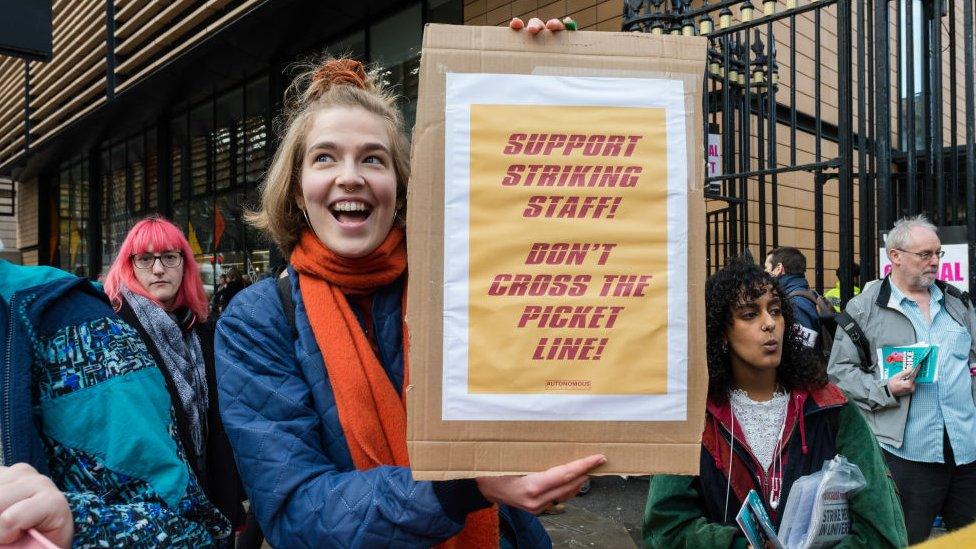Marking boycott impact downplayed by universities, union claims
- Published
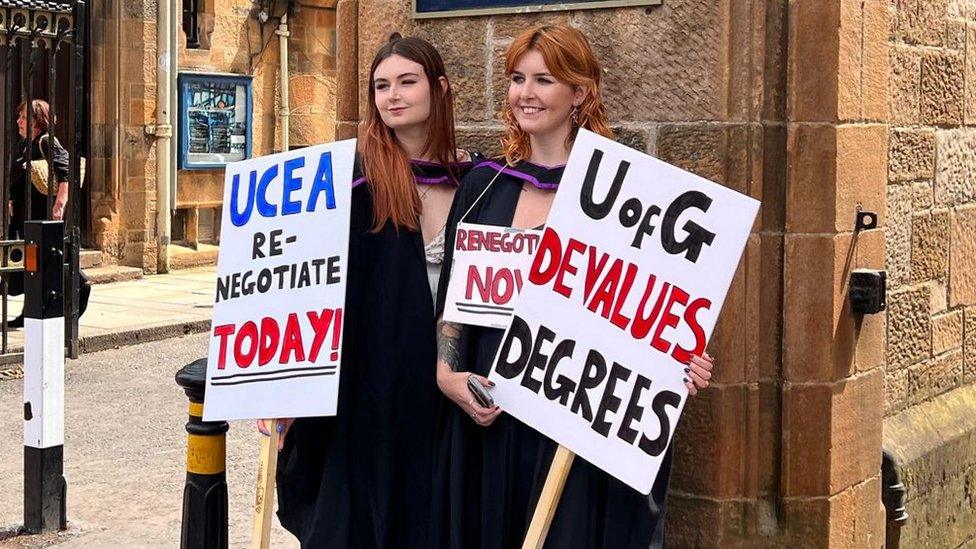
Jess Wilson (right) wore a placard around her neck at her graduation to protest at the University of Glasgow not giving her a final grade
University employers are downplaying the impact of a marking boycott on students, a union says.
The Universities and Colleges Employers Association (UCEA), which represents 144 institutions, has released a survey which it says suggests most students' graduations are not being affected.
The University and College Union (UCU) said the survey accounts for fewer than half of universities affected.
The boycott is part of a long-running dispute on pay and working conditions.
Some students have graduated without their final marks, while others have seen their graduations delayed.
'My future rests on this'
Jess Wilson, 23, graduated from the University of Glasgow on Wednesday, but has not been given a final grade.
She has a conditional offer to start her Masters course in global health in September, but must prove she has achieved a 2:1 or above in order to confirm her place: "This is my future - my entire plan for what I want to do in life rests on this degree," the sociology student said.
Ms Wilson, who is from just outside Edinburgh, told the BBC there had been an "abysmal" lack of communication from the university: "I'm heartbroken but I'm also so, so angry that the university let it get to this point."
The university says on its website, external that it is "doing everything we can to minimise the impact on students", and apologised for any worry or concern caused to students.
A spokesman added: "We have committed that no student will be prevented from graduating or onwards progression due to industrial action."
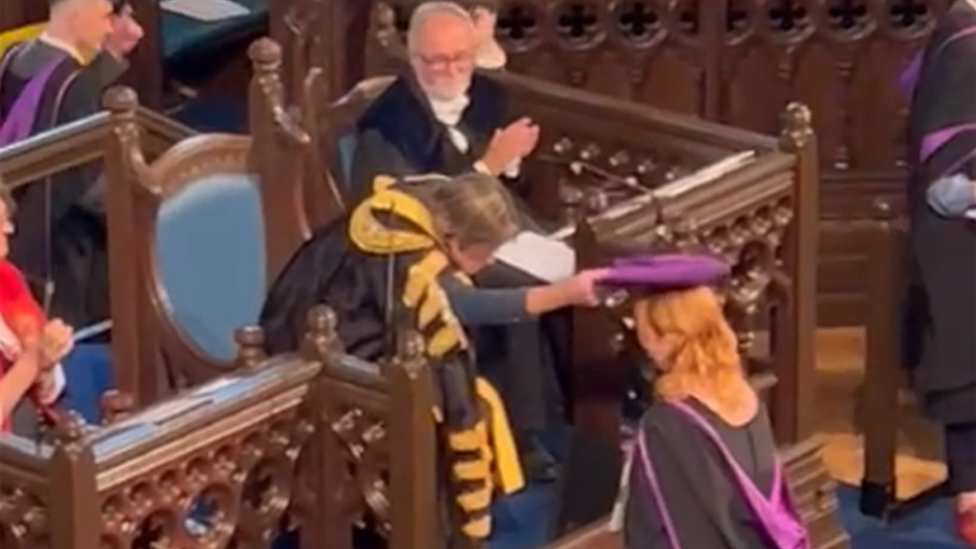
Ms Wilson's father took this video of her graduating with the protest placard around her neck
Ms Wilson said the boycott comes at the end of "a rather soul-destroying and quite frankly lacklustre four years at university", disrupted by industrial action as well as online learning during the pandemic.
The employer in the dispute, the UCEA, conducted its survey on Thursday. 70 of the 144 institutions it represents responded to a question about how graduations were being affected by the marking and assessment boycott.
Of those 70:
50 said fewer than 2% of students would be unable to graduate due to the marking boycott
Three said 2-9% would be unable to graduate
One said 25-49% would be unable to graduate
One said more than 50% would be unable to graduate
14 were unsure of the impact
One said it had not been affected by the boycott at all
UCEA chief Raj Jethwa told BBC Radio 4's Today programme that the survey findings showed the "majority of students" were not facing a graduation without their final marks: "Of course that's little comfort if you are one of the few students who is affected in this way, and we completely recognise this."
Jenny Sherrard, head of policy at UCU, accused UCEA of "trying to downplay the impact" of the boycott.
The union's general secretary, Jo Grady, added that the figures account for less than half of the universities hit by the industrial action, and that more than 5,000 students had so far been told their degrees had been affected.
In addition to the marking boycott, UCU members at more than 20 universities are going on strike, because they say members are having their pay docked for taking part in the boycott, despite fulfilling their other normal duties.
Dr Chloe Wallace, associate professor in law and UCU branch president, said Leeds University was threatening to deduct all of her pay for weeks, as a result of her refusal to do two days' worth of marking work.
"Years and years of declining working conditions, poor workloads, insecure contracts, mean that we can't give the students the education they deserve," Dr Wallace added.
Leeds University declined to comment.
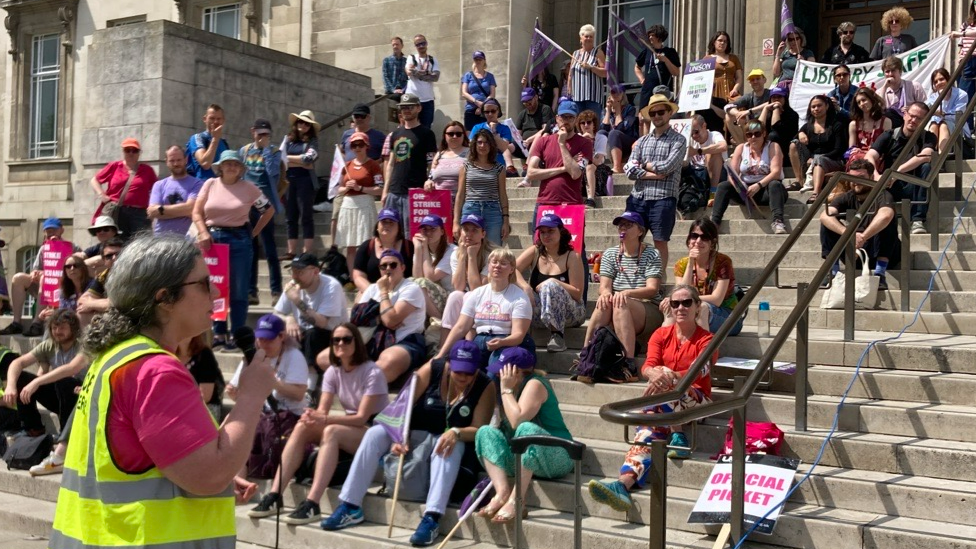
Dr Chloe Wallace, an associate professor, addresses supporters of the strike in Leeds
Despite talks about pay and working conditions stalling, the UCEA has advised universities to implement a 2023-24 pay uplift, worth between 5% and 8%, backdated to February.
The UCU says the pay uplift is still not an acceptable offer and is not in line with inflation.
The UCEA has said it is "fully committed" to working with the union to resolve the dispute, but that further industrial action - such as the marking boycott - may put negotiations in jeopardy.
It is anticipated further strike dates will be announced, as UCU members have voted in favour of more action.
Related topics
- Published20 June 2023
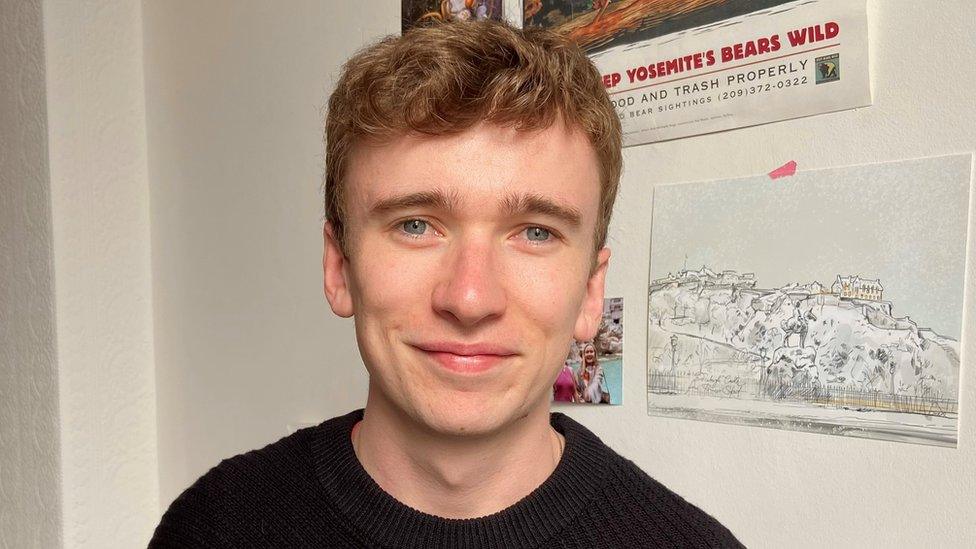
- Published15 June 2023
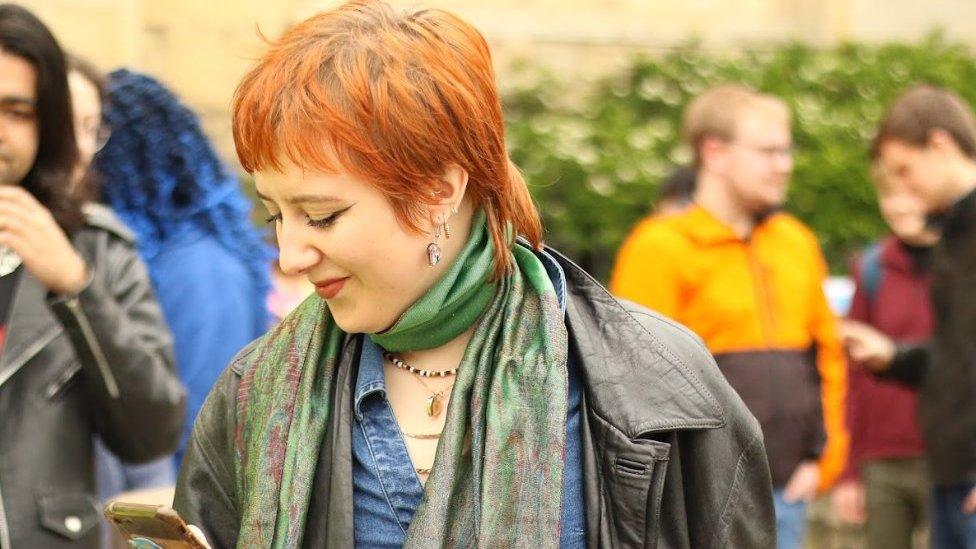
- Published22 June 2023

- Published20 October 2023
